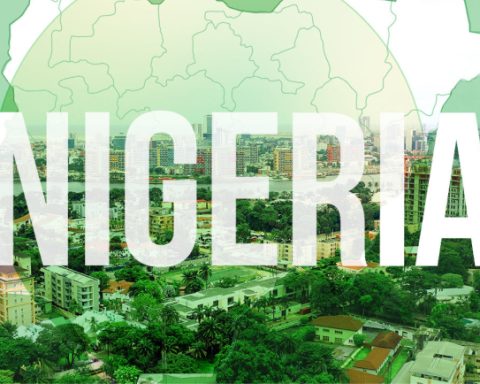The remarks of the elders have become a book of lamentations. Whether it is Senator Femi Okoroumu or Dr Umar Eleazu, whose books on leadership failure in Nigeria have similar titles, or poetic hymns of #EndSARS protesting youth, the consensus is that Nigeria malfunctions, suboptimal in outcomes in its drive for progress, and in many cases, dysfunctional in the way its institutions try to enable.
The evidence is out there and very clear. Whether it be the pejorative moniker of the poverty capital of the world, or the atrocious level of budget padding the National Assembly inflicts on the budget process, or Aliko Dangote discovering that fuel consumption statistics on which his refinery projection investments where made have proven to be wrong because they were constructs of the stealing through Fuel subsidy abuse, Nigeria is evidently in a collapse of culture mode.
Join our WhatsApp ChannelWhen a house is tottering, it seems logical to rush to strengthen the pillars on which it stands, the foundation. The grand norm clearly needs fixing, and the imperative for that is a matter of grave urgency.
As this republic was being birthed in 1999, a book appeared that was titled: “This House Has Fallen: Midnight in Nigeria.” It was written by Karl Meier. But we failed to call up Nehemiahs to rebuild the falling walls. The cracks got worse. This present darkness comes from a long tunnel, and the need for a beam of light is urgent.
I will highlight just two or three areas critical in the construction of a modus vivendi that is needed to pull Nigeria away from the brink. They are regarding a rethink of the place of Local Government Administration; the organisation of functional opposition in a Democracy; and a tripartite developmental state approach to governing.
Rethinking Local Government
The logic of the principles of subsidiary, which move public choice closest to the governed, and the idea of unity in diversity that undergirded the preference of Nigeria’s founding fathers for a federal system of government, are perhaps best realized in strong and effective local government administration.
Unfortunately centralizing tendency of military rule and the prebendal inclination of the alchemy of soldiers and Oil have robbed the LG administration of both prestige and talent, thus reducing it to a country cousin abused by Governors in structural rape.
The political parties are even more guilty of the kind of people they put forward and in the structures of accountability available at that level.
The thinking first needs to change in the direction of seeing LGAs as economic development units that identify local factor endowments and develop moderation of education curriculum that align talent to value chains from the local endowment. Even though I have pushed for this for more than 30 years and once organised workshops bringing in Professor Akin Mabogunje to dive into this home I am happy to point to the accomplishments of Vietnam’s economic growth strategies in the last two decades to support my point.
In this regard, Prof. Mabogunje’s strong point about involving community development associations, especially in places like the South East, needs to be emphasized.
The unacceptable reality of statistics suggesting 75% of people in rural Nigeria today live in chronic poverty is evidence enough of the urgency of reform.
READ ALSO: The Imperative And Urgency Of Constitutional Reforms
With many retiring from careers in the Civil Service and the professions, there is an abundance of talent with experience and self-actualization who can have a strategic approach to development in the LGA. Deploying regular town hall meetings as a model of checks and balances that draw civil society, especially the community development associations, into the governance process.
I am not particularly fussy about whether we have two or three federating levels. I am more inclined to two federating levels, but believe that whether they be two or three, LGA autonomy and competitiveness are key to progress.
A Tripartite Developmental State Culture
I am almost wearied out on pointing to the origins of the NESG from the Enabling Environment Forum, EEF, which came out of the 1985 Nairobi conference that prescribed a tripartite approach to governance in which the public sector, private sector, and PDAs or Social enterprise collaborate to advance the common good. Current trends of state capture in Nigeria and defections from the opposition to the party in power show that politicians cannot be relied on to set aside self-interest, so the idea of three arms of government and the existence of opposition parties can no longer be taken to protect the citizens from the abuse of power.
Both formal and informal roles for civil society can deepen the practice of checks and balances.
In the budget process, for example, I would suggest an oversight committee of citizens to which some professional bodies like ICAN, the NBA, Nigerian Society of Engineers and noted NGOs like Budgit and SERAP have representation.
Traditions of Opposition
If there is any lesson from the extant 10th Assembly, it is that the idea of checks and balances can be sacrificed at the altar of ‘juicy’ committee chairmanship, bribery to support bills, or looking away from that which best serves the common good.
Seeing how low we have sunk, I recently suggested elevating the profile of a shadow cabinet we have had active for 18 years so the people not lose hope.
I was amazed hearing people I thought were thoughtful talking about Westminster vs the American system, as if the monopoly for innovation regarding governance resides in London and Washington.
Even at that, the Westminster tradition of shadow government evolved only in the last century and was in public reference for more than 40 years before it was formally adopted in government after WW11.
Institutions evolve from the experience of a society.
In what tradition is the President’s question time in Parliament in South Africa?
And who said the Big Tent’s shadow team was an arm of government? Can civil society not organize itself to make a demand of the government’s conduct in a democracy? Many are the afflictions of a struggling society, but the worst is when its elite are hostage to the pedagogy of the oppressed, as Paulo Freire teaches elegantly.
Socrates feared for this day in the course of democracy. What groups, as for democracy, which by its nature democracy may allow, could eventually lead us to a Kakistocracy? Our grand norm must guide us away.
Conclusion
The British Historian, Niall Ferguson, in his book Civilization: “The Six Killer Apps of Western Power”, makes a sweeping statement indicating that the making of the US Constitution is probably the greatest effort at institution-building in human history. Without engaging the premise it is important to note the consensus among historians, economists, political scientists and sociologists that institutions separate the great performers of history from failing states. Whether it is in the great escape in which Angus Deaton locates the place of health and wealth in the origins of inequality, or how peers like the US and Argentina diverged markedly in economic performance from the 1930s, the importance of the Constitution in the pace of progress cannot be underestimated.
It is bearing the foregoing in mind that I consider this patriotic effort of the Patriots in convening this summit on the future of Nigeria’s Constitutional Democracy worthy of praise.
I am convinced that the few issues I have chosen to focus on will add tonic to the issues raised by other eminent participants at this summit and help us erect a new order.
I will urge, in this regard, multilayered policing from the community to the state and then the federal.
I also call for competitive developmentalism at the LGA level, driven by real political parties based on cohesive ideas of how problems are solved in society, values, and character of people who seek public life.
Patrick Okedinachi Utomi (Prof.) Founder, CVL, Patriot of many years standing, and Convener of The Big Tent.












